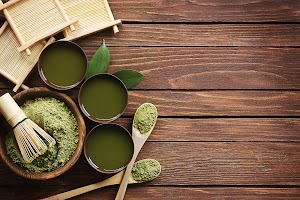Our modern lifestyles may be contributing to many health complaints commonly seen today. Many of us experience some form of stress; 9 out of 10 Australians report being stressed and 41% of people feel they experience unhealthy levels of stress. Stress and the body’s response to it can affect people in different ways. Small amounts of stress that are easily resolved can help to keep us motivated and achieve our goals. The difference with long term or chronic stress is that it
can affect the whole body in a negative way.
Looking for the ‘Off ’ Butt on Stress can affect each of us differently. Perhaps you are suffering from anxiety, feeling worried, depressed or irritable; even feeling exhausted and overwhelmed can indicate you are under stress. As well as affecting your ability to cope, stress may also be causing a disruption to your health. When under stress for a length of time, you may be more susceptible to tension headaches, high blood pressure, frequent colds and flus, digestive disorders or a worsening of an existing condition. So you can see, there are many reasons why it is so important to manage your stress now, before it starts impacting your health and well being.
How Resilience Begins
Some people seem to deal with stress better than others. That doesn’t mean that the rest of us need to continue suffering. The ability to increase your resilience to stress is something that can be learned and helped with key supplements, combining specific ingredients to support your body’s individual stress response system
Lifestyle Tips to Help Manage Stress
Managing your stress is essential for long term health and vitality. With the support of your Practitioner, a variety of stress relief techniques can be introduced, in conjunction with a healthy eating plan to help you stress less. These may include:
- Exercise: Daily movement is essential for brain health. Aerobic exercise including running, swimming or walking is
proven to decrease stress hormones. - Enjoy the benefits of spending some time in the sun. Being in nature for 30 minutes per day can help reduce stress
hormones and assist recovery after a stressful situation. - Meditation and/or yoga can help to increase relaxation whilst benefiting not just the mind, but also the body. Learning to unwind is important for reducing stress
- Favourite pastime: create time for YOU! Do something that you love, like listening to music, enjoying a candle lit bath,
watching a movie, or starting a creative project – these fun activities can help you become more tolerant of everyday
stress. - Get creative and express yourself in as many different ways as feels good; singing, dancing, and art projects are but a
few ways to do this. - Eat seasonally, fresh and organic as much as possible. Include protein at every meal with a variety of fruit and
vegetables. - Include good fats such as omega 3s from fish, nuts and seeds, and olive oil to help with brain health and mood
regulation. - Drink plenty of water, a minimum of eight glasses per day and avoid excessive alcohol, caffeine, sugar and salt.
Stress Less for Good Health
Our modern lifestyle is inescapable. The stress of it however, is manageable. You can become more resilient to the symptoms
and long term effects of stress through the aid of individualized lifestyle and dietary changes, together with key natural medicines as recommended by your Practitioner. Supporting a healthy stress response will allow you to feel more energized, resilient and ready to tackle life, so you can maintain the state of health and wellness that you deserve.
If you would like more information on how Naturopathy or how our Naturopath can help you click here .


